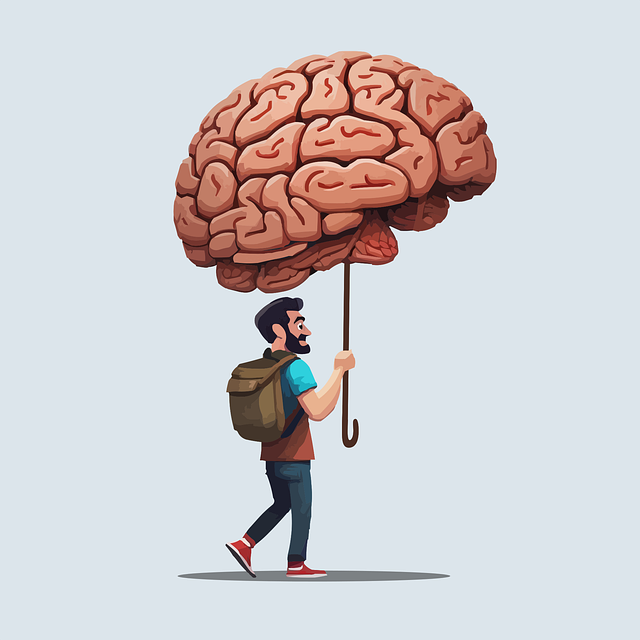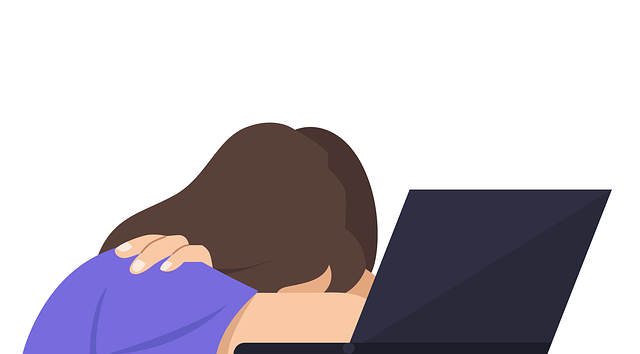Centennial Cognitive Processing Therapy (CCPT) is an effective approach to managing anxiety by targeting negative thought patterns and replacing them with positive perspectives. This structured therapy, combined with mindfulness practices and lifestyle adjustments like exercise and meditation, equips individuals with coping strategies for immediate and long-term stress reduction, leading to improved emotional well-being.
“Anxiety is a pervasive and complex emotion, affecting millions worldwide. In this comprehensive guide, we explore effective anxiety management techniques to empower individuals in their mental health journeys. From unraveling the intricacies of anxiety to discovering powerful therapies like Cognitive Behavioral Therapy (CBT) and Centennial Cognitive Processing Therapy, each section offers valuable insights. Learn how mindfulness, meditation, and lifestyle adjustments can significantly enhance mental wellbeing, providing practical tools for managing anxiety effectively.”
- Understanding Anxiety: Unraveling the Complex Emotion
- Cognitive Behavioral Therapy (CBT): A Powerful Tool for Change
- Centennial Cognitive Processing Therapy: An In-Depth Look
- Mindfulness and Meditation: Calming the Anxious Mind
- Lifestyle Adjustments for Better Mental Wellbeing
Understanding Anxiety: Unraveling the Complex Emotion

Anxiety, a complex emotion, is more than just feeling nervous or worried. It’s a response to stress that can be triggered by external factors or internal thoughts and beliefs. Understanding anxiety involves recognizing its intricate interplay with our cognitive processes. Centennial Cognitive Processing Therapy (CCPT) delves into these emotional healing processes, focusing on identifying and challenging negative thought patterns that contribute to heightened anxiety.
By exploring the mind’s role in creating and perpetuating anxious feelings, CCPT offers valuable stress reduction methods. It encourages individuals to adopt positive thinking strategies, shifting their perspective from fear-based reactions to more adaptive coping mechanisms. This approach empowers people to manage anxiety effectively, fostering a sense of control over their emotional well-being.
Cognitive Behavioral Therapy (CBT): A Powerful Tool for Change

Cognitive Behavioral Therapy (CBT) is a highly effective approach to managing anxiety and has been recognized as one of the leading evidence-based practices in psychology. This therapy focuses on the connection between our thoughts, feelings, and behaviors, aiming to help individuals challenge and change unhelpful thought patterns that contribute to anxiety disorders. By identifying negative or distorted thinking, CBT empowers clients to develop more realistic and positive perspectives, thus reducing anxious symptoms.
In the context of Centennial Cognitive Processing Therapy, the goal is not only to manage immediate anxiety but also to foster long-term resilience and inner strength. Through structured sessions, individuals learn valuable coping strategies and skills to navigate challenging situations. This includes self-care routine development for better mental health, where CBT encourages setting aside time for relaxation, exercise, and mindfulness practices known to enhance overall well-being. By building resilience and inner strength, individuals become better equipped to handle anxiety triggers and develop a more balanced and peaceful mindset.
Centennial Cognitive Processing Therapy: An In-Depth Look

Centennial Cognitive Processing Therapy (CCPT) is a form of therapy that focuses on identifying and modifying negative thought patterns and behaviors associated with anxiety disorders. This approach delves into the root causes of anxiety, believed to be rooted in distorted thinking and unhelpful coping strategies. By addressing these issues, CCPT aims to help individuals develop more adaptive and healthy ways of processing thoughts and emotions.
The therapy involves a structured process where mental health professionals assist clients in understanding their unique thought patterns and triggers. Through comprehensive risk assessment, therapists help patients recognize maladaptive beliefs and behaviors that contribute to anxiety symptoms. This personalized approach empowers individuals to challenge and replace negative thoughts with more realistic and balanced perspectives, leading to improved coping skills development and ultimately, anxiety relief.
Mindfulness and Meditation: Calming the Anxious Mind

Mindfulness and meditation are powerful tools to calm an anxious mind. By focusing on the present moment, individuals can break free from the cycle of worrisome thoughts that characterize anxiety disorders. Centennial Cognitive Processing Therapy (CCPT) encourages patients to challenge negative thought patterns and replace them with more positive and realistic perspectives. This process enhances one’s ability to manage stress and develop coping skills.
Regular meditation practice has been shown to reduce symptoms of anxiety, promote relaxation, and improve overall mental well-being. It involves training the mind to focus on specific objects, thoughts, or activities to achieve a state of calm and clarity. Incorporating mindfulness into daily routines can foster positive thinking and better stress management, providing individuals with effective tools for coping with anxious feelings.
Lifestyle Adjustments for Better Mental Wellbeing

In managing anxiety, lifestyle adjustments play a pivotal role in enhancing mental wellbeing. Beyond traditional therapy methods like Centennial Cognitive Processing Therapy, incorporating compassion cultivation practices can significantly reduce anxious thoughts and promote emotional resilience. By fostering a culture of self-care, individuals can better navigate stress triggers. Regular exercise, mindfulness meditation, and maintaining a balanced diet are effective strategies to calm the mind and body.
Additionally, conflict resolution techniques contribute to a peaceful mindset, allowing for healthier relationships and reduced anxiety levels. Building resilience further equips individuals to face challenges head-on. When combined with Centennial Cognitive Processing Therapy, these lifestyle changes create a holistic approach to managing anxiety, offering lasting relief and improved mental health outcomes.
Anxiety management is a multifaceted journey, and with the right tools, individuals can effectively navigate and overcome their fears. By understanding the complexities of anxiety, exploring evidence-based therapies like CBT and Centennial Cognitive Processing Therapy, adopting mindfulness practices, and incorporating lifestyle changes, one can achieve better mental wellbeing. These techniques empower individuals to take control, foster resilience, and live more fulfilling lives free from anxiety’s grasp.











